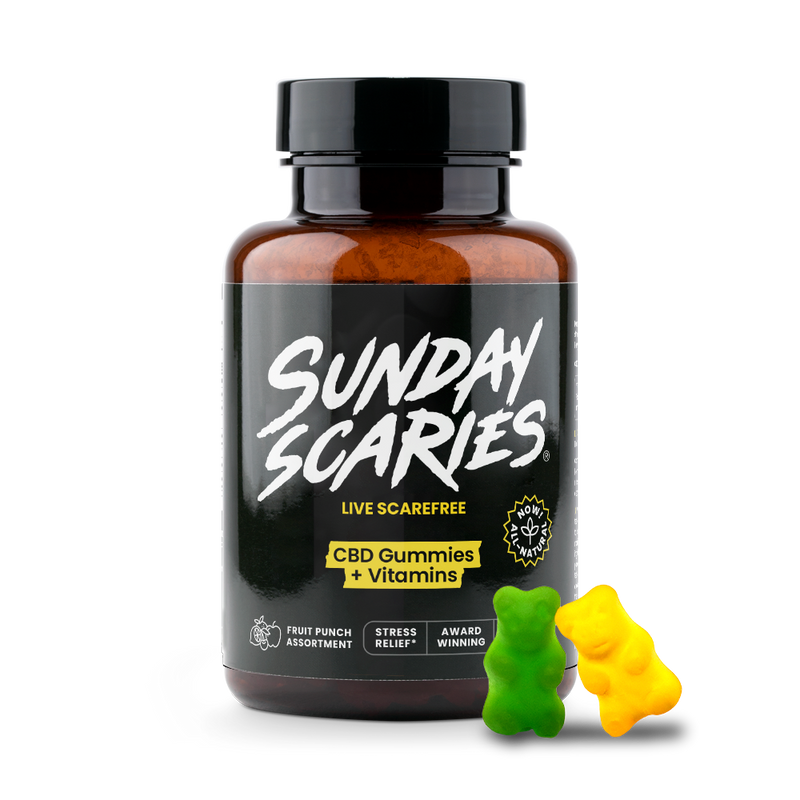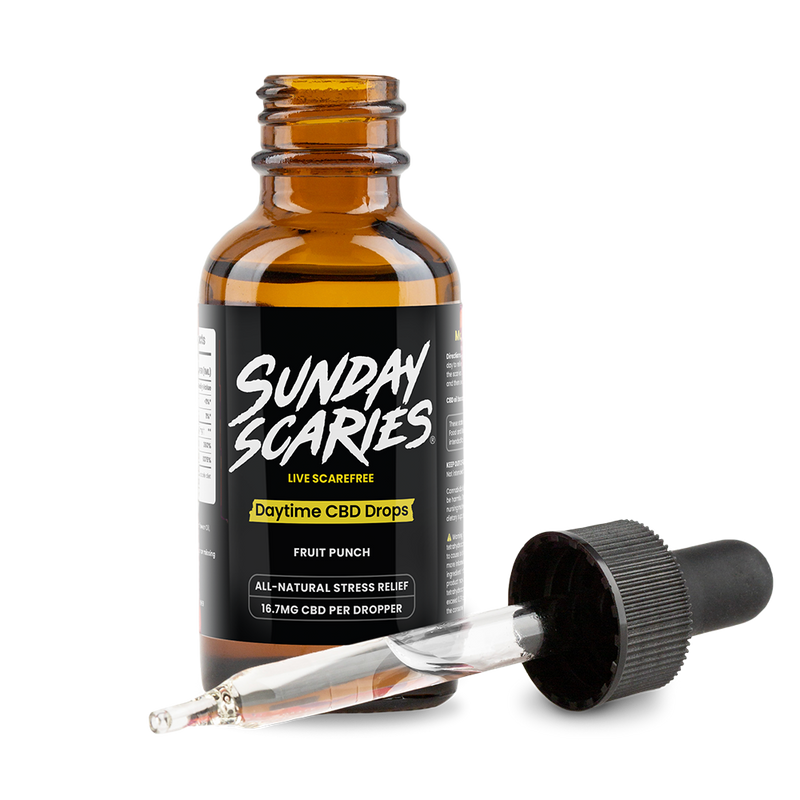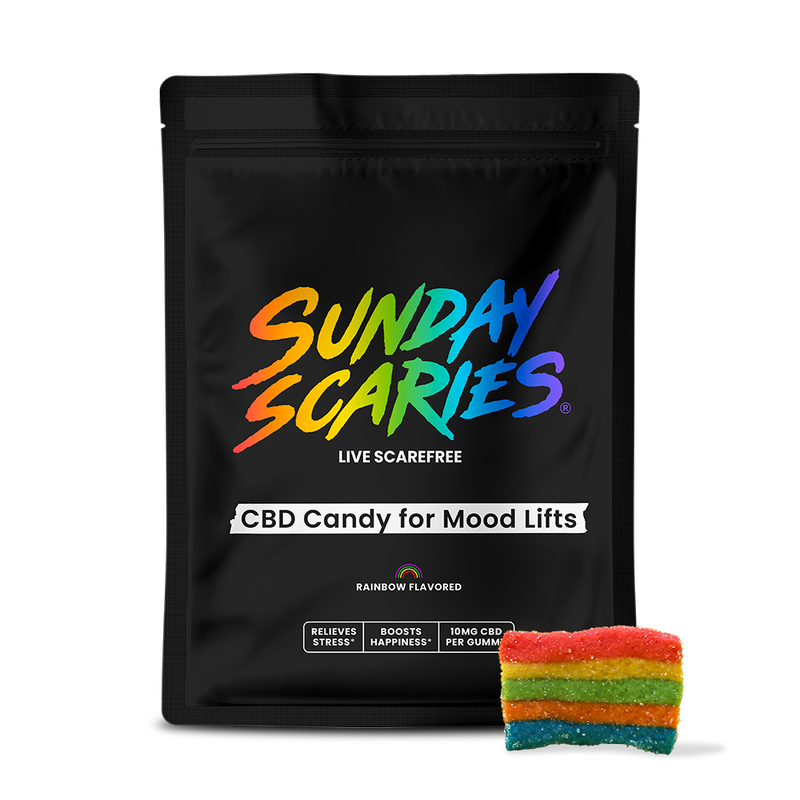
Does CBD Get You High? How It Feels
CBD doesn’t get you high — instead, it offers a subtle, calming experience that varies by dose and product type. This guide breaks down how it works, how it feels, and what to know before trying it for yourself.
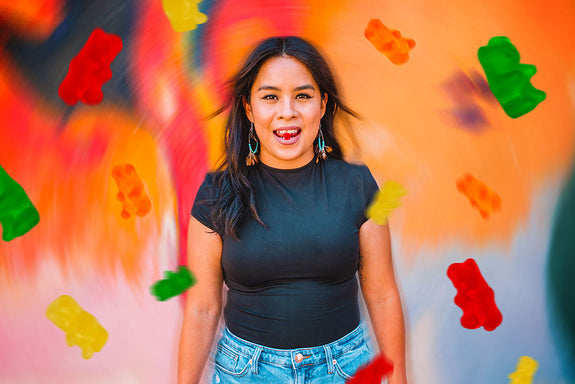
Unveiling the secrets of CBD, a natural compound found in cannabis plants, is a journey like peeling an onion, with layer upon layer of intriguing facts awaiting discovery.
From its non-intoxicating nature to its potential health benefits, CBD is a world of its own in the larger universe of cannabis-derived compounds.
But what sets it apart from its psychoactive counterpart, THC? And why does the question “Does CBD make you high?” keep getting asked?
Find out how it interacts with our bodies, and what we should know before trying it ourselves.
Key Takeaways
- CBD, also known as cannabidiol, is a non-psychoactive component of cannabis that does not produce a high, with potential health benefits such as stress relief, reduction of anxiousness, improved sleep and anti-inflammatory properties.
- Hemp-derived CBD with low THC (less than .3%) is federally legal in the U.S. due to the Agriculture Improvement Act (Farm Bill), while marijuana-derived CBD is federally illegal. Only one CBD-based medication, Epidiolex, is FDA-approved to treat epilepsy.
- While CBD is generally safe and non-addictive, it may cause mild side effects at high doses and interact with certain medications, underscoring the importance of consulting healthcare professionals before use.
Understanding CBD and Its Psychoactive Potential

CBD, or cannabidiol, is a non-psychoactive component found in cannabis plants that does not get you high. Unlike THC, which is notorious for inducing the euphoric sensation often linked with marijuana, CBD helps restore a more balanced state, resulting in an improved sense of well-being.
Echoing Harvard Health Publishing, CBD does not get you high but can change your consciousness, meaning you can feel a cool, calm sense of relief and an improvement in bodily functions even at lower doses.
This is why many people believe that CBD works effectively for various health issues. Deemed safe by the World Health Organization, with no risk of dependency or abuse, CBD has been gaining traction in the world of healthcare. Some benefits of CBD include:
- Stress relief
- Reduced anxiousness
- Improvement of sleep disorders
- Anti-swelling properties
- Body ache relief
- Potential neuroprotective effects
While many cannabidiol users are experiencing a profound increase in quality of life, more research and peer reviewed studies need to be conducted on the cannabis plant. Until the FDA approves CBD as a dietary supplement its important to note that more information is needed before placing claims on its effects.
With its growing popularity, CBD is now available in various forms such as CBD oil, CBD gummies, CBD candy, capsules, creams, and edibles. It’s important to consult with a healthcare professional before taking CBD and incorporating it into your wellness routine, especially if you are on other medications.
Known for its potential health benefits, medical cannabis, derived from the cannabis sativa plant in the form of medical marijuana, can also alleviate health conditions. Although, these products will indeed get you high.
You can extract CBD from both hemp and marijuana, although CBD extracted from hemp is legal while CBD extracted from marijuana is illegal under federal law. Regardless of which plant the cannabinoids are extracted, they are the same chemical compound in the end. So, the legality is a bit absurd.
The Notable Difference Between THC and CBD
The key difference between THC and CBD, the two major cannabis-derived compounds, lies in their psychoactive properties. THC, the primary psychoactive component in the cannabis plant, leads to the sensation of ‘high.’ However, CBD lacks these psychoactive properties and does not induce intoxication.
THC modifies brain function, resulting in alterations in perception, mood, and temporary memory impairments.
On the other hand, CBD does not induce these psychoactive effects and shows minimal binding with CB1 receptors in the brain.
This differing interaction with the brain is due to their distinct metabolization processes in the liver.
The Legal Status of Hemp-Derived CBD vs. Marijuana-Derived CBD

As the intriguing aspects of CBD continue to unfold, understanding its legal landscape becomes increasingly necessary. Hemp-derived CBD, extracted from the hemp plant, enjoys a federal legal status, thanks to the Agriculture Improvement Act, also known as the Farm Bill. This act removed hemp, including hemp-derived CBD with low THC concentrations, from the definition of marijuana in the Controlled Substances Act, thus rendering it legal at the federal level.
However, the legality of medical marijuana, particularly marijuana-derived CBD, varies depending on the state or country due to differing local laws. CBD derived from marijuana cannot be shipped across state lines and can be used medically in some states and recreationally in others. If you are looking to take CBD on a plane or across state borders by car, ensure that it is hemp-derived CBD.
Currently, the FDA has approved only one CBD-based medication, Epidiolex, specifically for treating severe forms of epilepsy such as Dravet syndrome and Lennox-Gastaut syndrome.
This is the first drug classified for CBD by the FDA and is used to treat rare forms of epilepsy, while over-the-counter or direct-to-consumer CBD products are mostly used to help with mild symptoms of stress, sleeping issues or body aches.
Potential Harms and Side Effects at High Doses
Despite its potential therapeutic benefits, high doses of CBD may lead to mild side effects. However, CBD is generally regarded as safe and non-addictive. Users may experience the following possible side effects:
- Dry mouth
- Decreased appetite
- Lethargy
- Gastrointestinal distress
- Skin reactions or allergies in certain individuals
However, it’s worth noting that there have been no indications of toxicity or significant adverse effects observed. So if you're wondering if you can take too much CBD, the answer is yes, but there is no known lethal dose.
While these are possible side effects of CBD products, they usually only occur at higher doses and in most cases you may just feel a bit sleepy when you take CBD.
CBD's Interaction With Other Drugs and Prescription Medications
Although generally safe, CBD may interact with certain medications. Before you take CBD alongside prescription drugs, consulting a healthcare professional is highly recommended. CBD interacts with cytochrome P450 drug metabolizing enzymes, potentially impacting the concurrent use of CBD with other pharmaceutical drugs. It has the potential to interact with medications like:
- Blood thinners
- Heart rhythm medications
- Seizure medications
- Antidepressants
- Muscle relaxers
- Drugs that suppress the central nervous system
- Ibuprofen
- Adderall
- Antibiotics
- Caffeine
- and various others.
Comprehending this interaction ensures the safe and effective use of CBD.
Debunking Myths: CBD's Non-Intoxicating Nature

Despite the growing popularity of CBD, misconceptions still abound. One common myth is that CBD can cause a ‘high’ or induce intoxication.
However, this couldn’t be further from the truth. The non-intoxicating nature of CBD is attributed to its interaction with the endocannabinoid system, specifically its low affinity for CB1 receptors, which are associated with the intoxicating effects of THC.
Scientific research has indicated that CBD does not induce intoxication or euphoria. It is non-intoxicating and does not result in a ‘high’.
This myth is mostly due to the three groups of CBD varieties that can be extracted from the hemp plant: Full Spectrum, Broad Spectrum and Isolate.
Knowing the differences of these varieties and their distinction from THC products is important when looking for the best CBD products to buy.
Full Spectrum vs. Broad Spectrum vs. Isolate: Understanding CBD Product Types

If you are venturing into the world of CBD, distinguishing between Full Spectrum CBD, Broad Spectrum CBD and CBD Isolate can aid in product selection.
The variety of all cannabinoids (chemical compounds) in Full Spectrum CBD products offers additional benefits due to the synergistic interaction known as the entourage effect. This includes both THC and CBD, although the amount of THC is too low to produce a psychoactive effect.
Broad Spectrum CBD products are like Full Spectrum in that they include the additional compounds such as the cannabinoids, terpenes and flavonoids but do not contain any material amount of THC.
CBD isolate comprises purified CBD, whereas all of the other cannabinoids are stripped out, leaving just pure CBD, or cannabidiol as the active ingredient derived.
Here at Sunday Scaries, we use proprietary Full Spectrum blends in our products since the trace amount of THC produces the entourage effect and optimizes the efficacy.
Choosing the Right CBD Product for You

Selecting the right CBD product is key in order to access the potential benefits while remaining safe. When purchasing CBD products, consider the following:
- Look for products made from hemp using organically grown methods
- Ensure the raw materials are sourced from the USA
- Check for transparent lab reports that show the product’s potency and purity
- Ensure that the product uses only the highest quality ingredients
- Choose the right "vehicle" of your liking whether it be gummies, tinctures, candies or capsules
- Ensure that the brand you choose custom formulates for a specific ailment, as most CBD products claim to be a cure-all for many different ailments
- Ensure that the company has a 100% money back guarantee
By considering these factors, you can ensure that you are purchasing a high-quality CBD product.
It’s like buying a car; you would want to check its features, performance, and safety measures before making the final decision.
What to Look for in Lab Reports and Certifications
Diving deeper into the details, lab reports and certifications can provide valuable information about the quality, potency and safety of a CBD product. A CBD lab report commonly contains comprehensive details regarding the product’s quality, encompassing:
- The presence and quantity of various compounds like cannabinoids and terpenes
- The levels of THC (tetrahydrocannabinol) in the product
- The presence of any contaminants or pesticides
These lab reports can help consumers make informed decisions about the CBD products they purchase.
A certificate of analysis typically includes information about:
- The testing lab
- The brand
- A thorough chemical analysis that outlines the potency of ingredients
- Cannabinoid contents such as CBD and THC levels
- Tests for any potentially harmful substances
If you’re trying CBD gummies for the first time, it’s normal to wonder how long they take to kick in — and how long the effects will stick around.
How Long the Effects of CBD Take to Kick In and How Long They Last
The effects of CBD typically kick in within 20 to 60 minutes, depending on the method of consumption. If you take CBD oil sublingually (under the tongue), it tends to absorb faster, with effects often felt around the 20-minute mark. CBD edibles like gummies or capsules can take longer (30 minutes to 1 hour) because they must first pass through your digestive system. Inhalation methods, like vaping, deliver CBD to your bloodstream almost immediately, making it the quickest way to feel the effects, often within minutes.
Once CBD starts working, its effects generally last between 4 to 8 hours. Factors like your metabolism, the dosage, the type of CBD product (full-spectrum, broad-spectrum, or isolate), and your body weight can influence both how fast it kicks in and how long it stays active. For example, someone with a faster metabolism might feel the effects more quickly but for a shorter period.
CBD's benefits are subtle and can include feelings of calm, stress relief, better focus, or physical relaxation, rather than a dramatic "high" like THC. Understanding how long CBD effects take to kick in and how long they last is important for planning when to take it—whether you’re using it for daytime stress relief, workout recovery, or winding down before bed.
If you’re trying CBD for the first time, start with a lower dose and give it time to work before increasing.
Personal Experiences With CBD Oil: User Testimonials
Testimonials from CBD users can provide valuable insights into the potential benefits and effects of CBD.
Many individuals have reported that they find CBD to be a beneficial treatment option for stress relief, sleep aid and more and that it is non-harmful and non-addictive.
Although individual experiences may vary, these testimonials can help potential users gauge what to expect from CBD usage.
Finally, before you buy any CBD products, check the product reviews and ensure that they come from "Verified Buyers" to ensure the legitimacy and credibility of the company.
Summary
Navigating the world of CBD is an enlightening journey, revealing its non-intoxicating nature, potential therapeutic benefits, differing effects on the body and interactions with other drugs.
With an understanding of its legal status, the distinction between Full Spectrum, Broad Spectrum and CBD isolate, and what to look for in lab reports and certifications, one can make informed decisions about CBD use.
As we’ve seen, CBD is much more than a compound derived from the cannabis plant; it’s a testament to nature’s potential in promoting well-being. This is all without getting you high, like THC products will.
Frequently Asked Questions
Does CBD cause a 'high'?
No, CBD does not cause a 'high' as it has a low affinity for CB1 receptors, which are responsible for the intoxicating effects of THC.
Does CBD feel like alcohol?
No, while CBD can have similar anxiousness-reducing effects as alcohol, it should not be thought of as a replacement for alcohol, as their mechanisms and overall effects on the body differ. CBD has actually been known to help with hangover symptoms, aiding in the after-effects of alcohol consumption.
How much CBD should a beginner start with?
A beginner should start with a low dose of 10-20mg of CBD and gradually increase by 10mg every 2 to 3 days as needed, following the "start low and go slow" approach.
When will the FDA regulate cannabidiol (CBD) as a dietary supplement?
Predicting an exact timeline for FDA regulations on CBD as a dietary supplement is challenging. The agency continually reviews available research, collects public comments, and conducts its evaluations before establishing regulatory frameworks. Factors such as evolving research findings, public input, and industry practices can influence the FDA's decisions and the pace of regulatory development.

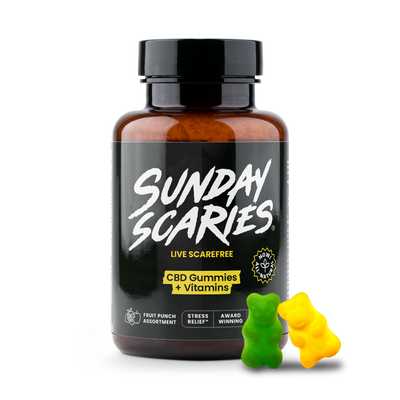 CBD Gummies
Stress Relief
CBD Gummies
Stress Relief
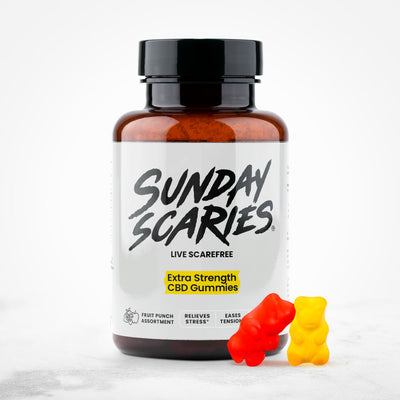 Extra Strength CBD Gummies
Stress Relief
Extra Strength CBD Gummies
Stress Relief
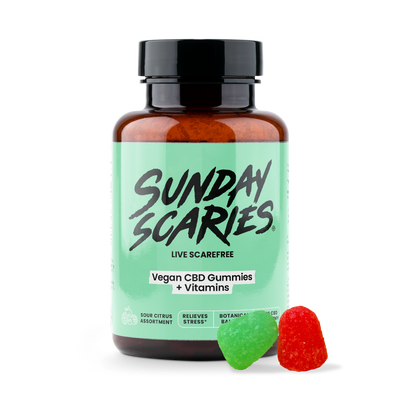 Vegan CBD Gummies
Stress Relief
Vegan CBD Gummies
Stress Relief
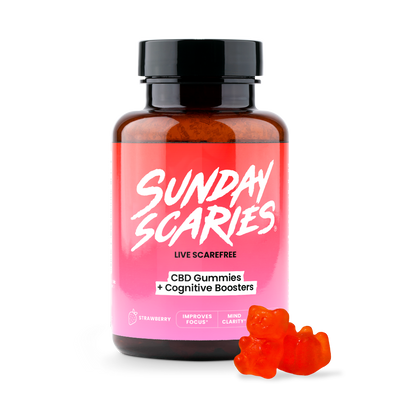 CBD Gummies for Focus
Focus Boost
CBD Gummies for Focus
Focus Boost
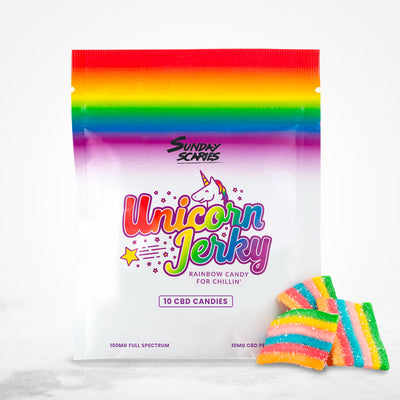 CBD Candy
Mood Lift
CBD Candy
Mood Lift
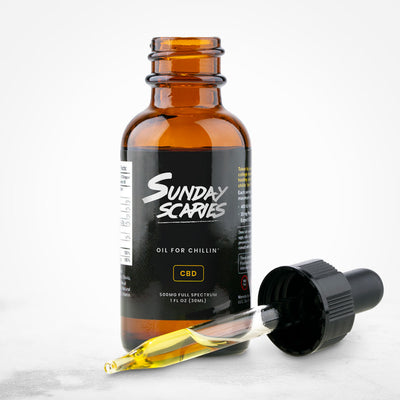 CBD Daytime Oil
Stress Relief
CBD Daytime Oil
Stress Relief
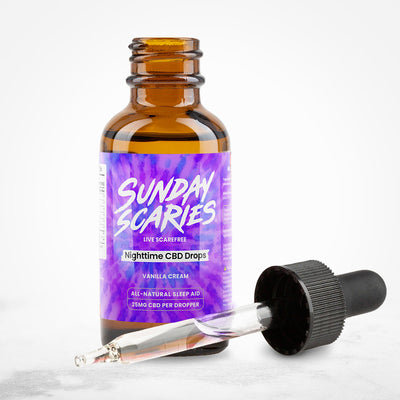 CBD Sleep Oil
Sleep Aid
CBD Sleep Oil
Sleep Aid
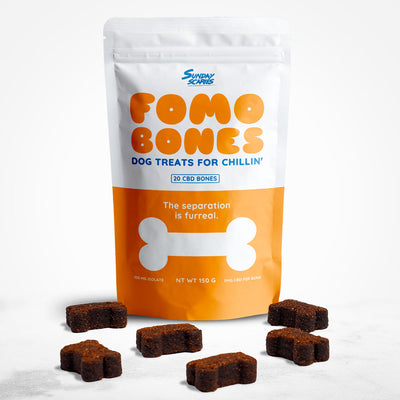 CBD Dog Treats
Stress Relief
CBD Dog Treats
Stress Relief
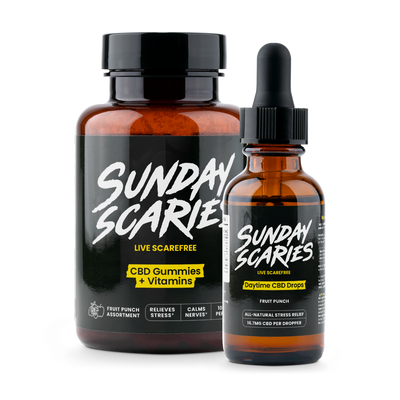 Side Piece Bundle
Stress Relief
Side Piece Bundle
Stress Relief
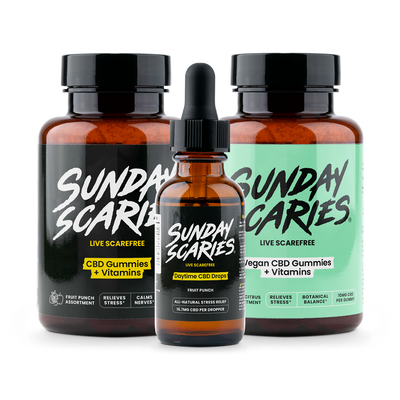 Rando Bundle
Stress Relief
Rando Bundle
Stress Relief
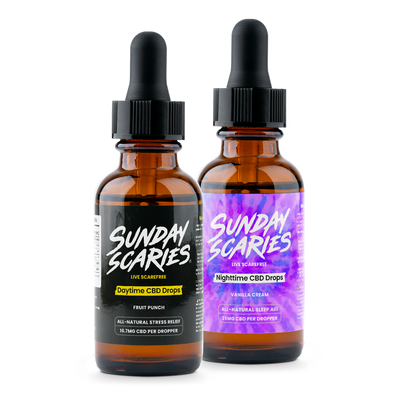 Sunrise & Sunset CBD Oil Bundle
Stress Relief
Sunrise & Sunset CBD Oil Bundle
Stress Relief
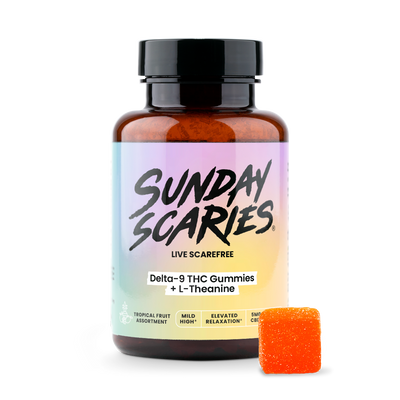 5mg Delta-9 Gummies
Euphoria
5mg Delta-9 Gummies
Euphoria
 10mg Delta-9 Gummies
Euphoria
10mg Delta-9 Gummies
Euphoria
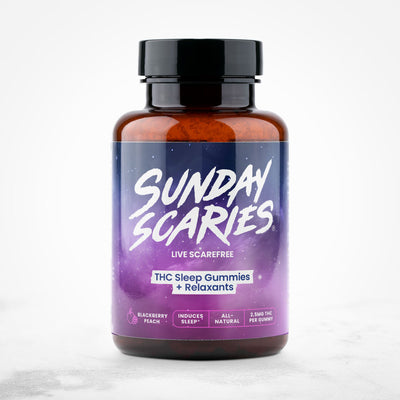 THC Gummies for Sleep
Sleep Aid
THC Gummies for Sleep
Sleep Aid
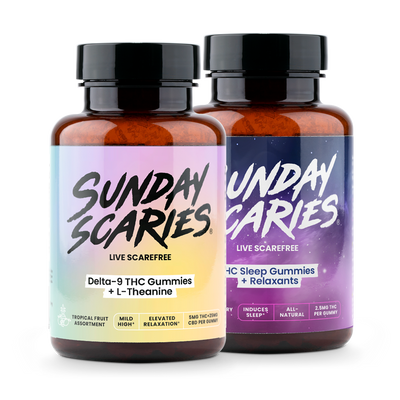 Day & Night THC Gummies Bundle
Stress Relief
Day & Night THC Gummies Bundle
Stress Relief
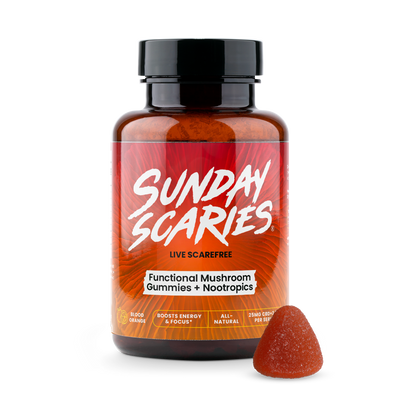 Mushroom Gummies
Focus Boost
Mushroom Gummies
Focus Boost
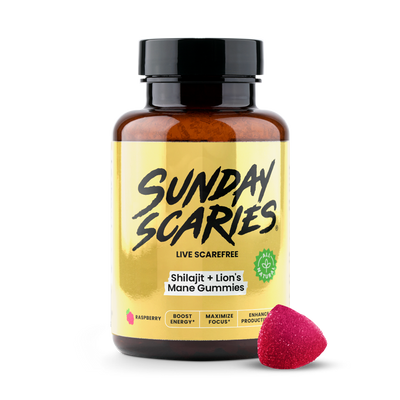 Shilajit Gummies
Focus Boost
Shilajit Gummies
Focus Boost
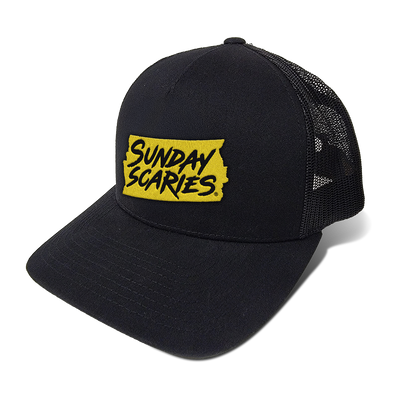 Sunday Scaries Hat
Sunday Scaries Hat
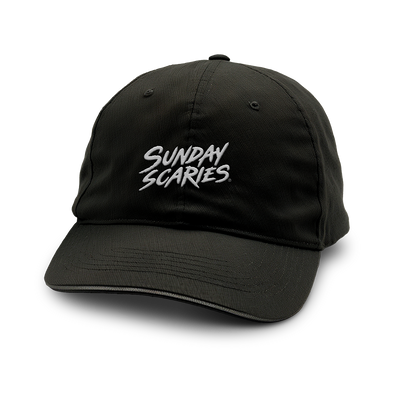 Sunday Scaries Dad Hat
Sunday Scaries Dad Hat
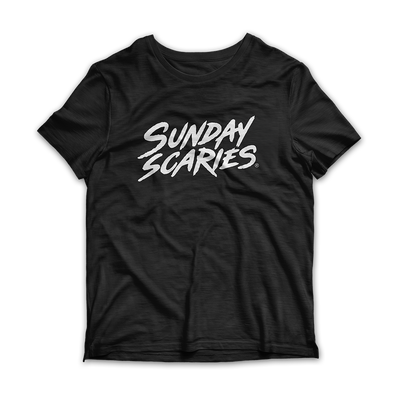 Sunday Scaries T-Shirt
Sunday Scaries T-Shirt
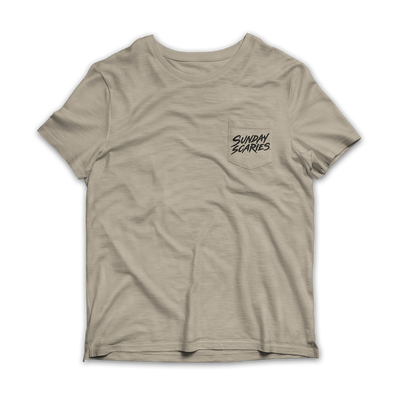 Sunday Scaries Pocket Tee
Sunday Scaries Pocket Tee
 Sunday Scaries Tank Top
Sunday Scaries Tank Top
 Sunday Scaries Sweatshirt
Sunday Scaries Sweatshirt
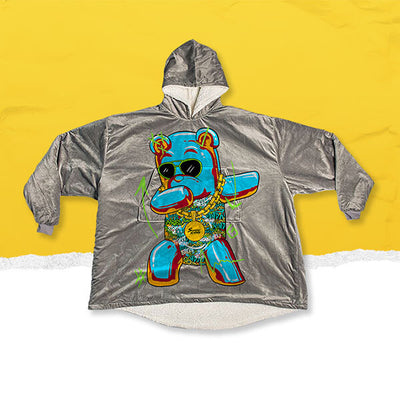 Sunday Scaries Blanket Jacket
Sunday Scaries Blanket Jacket
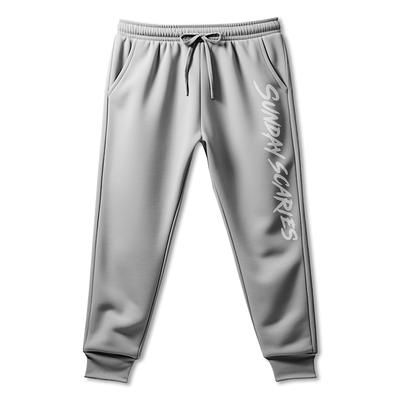 Sunday Scaries Sweatpants
Sunday Scaries Sweatpants

